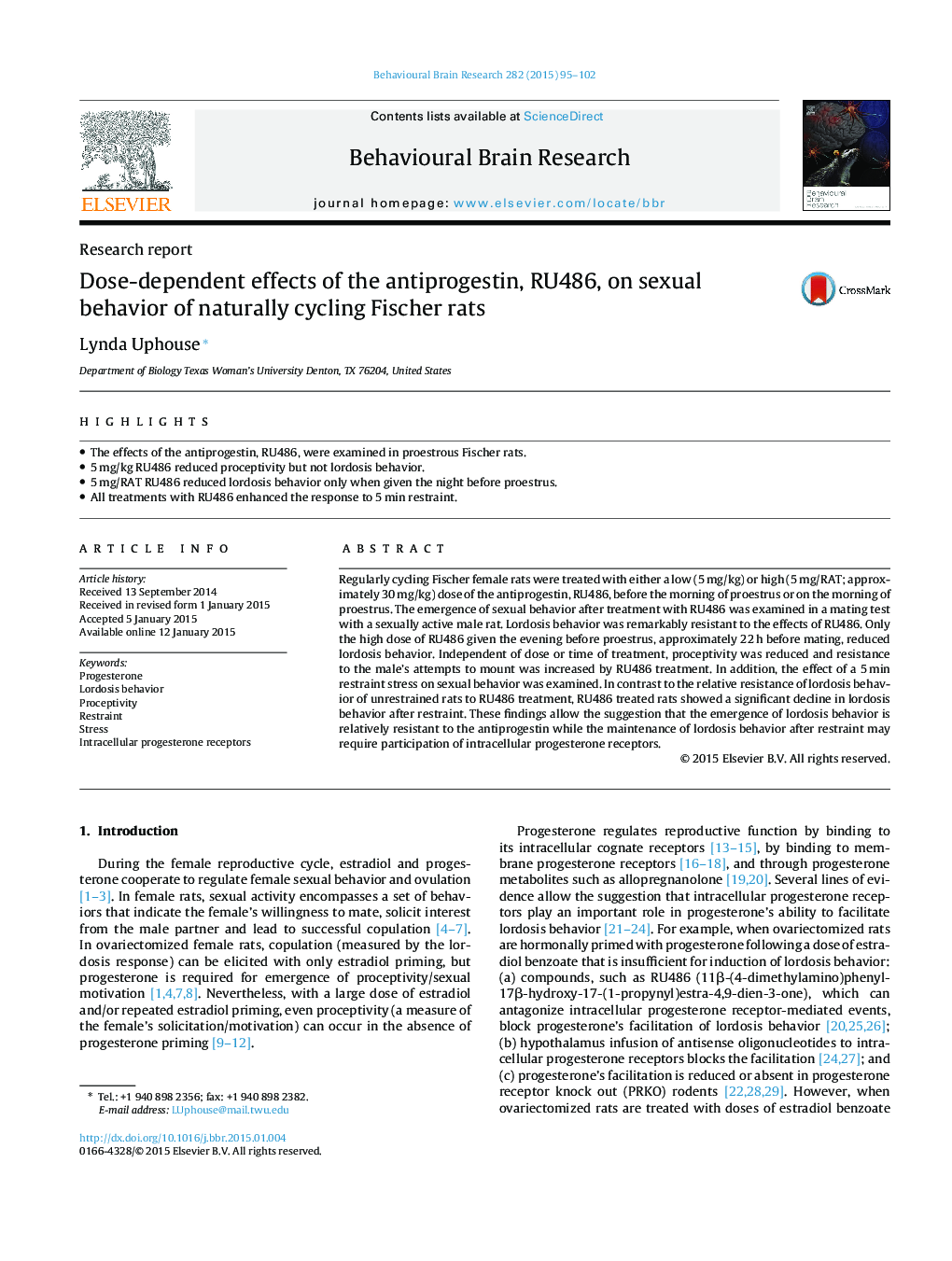| Article ID | Journal | Published Year | Pages | File Type |
|---|---|---|---|---|
| 6257266 | Behavioural Brain Research | 2015 | 8 Pages |
â¢The effects of the antiprogestin, RU486, were examined in proestrous Fischer rats.â¢5 mg/kg RU486 reduced proceptivity but not lordosis behavior.â¢5 mg/RAT RU486 reduced lordosis behavior only when given the night before proestrus.â¢All treatments with RU486 enhanced the response to 5 min restraint.
Regularly cycling Fischer female rats were treated with either a low (5Â mg/kg) or high (5Â mg/RAT; approximately 30Â mg/kg) dose of the antiprogestin, RU486, before the morning of proestrus or on the morning of proestrus. The emergence of sexual behavior after treatment with RU486 was examined in a mating test with a sexually active male rat. Lordosis behavior was remarkably resistant to the effects of RU486. Only the high dose of RU486 given the evening before proestrus, approximately 22Â h before mating, reduced lordosis behavior. Independent of dose or time of treatment, proceptivity was reduced and resistance to the male's attempts to mount was increased by RU486 treatment. In addition, the effect of a 5Â min restraint stress on sexual behavior was examined. In contrast to the relative resistance of lordosis behavior of unrestrained rats to RU486 treatment, RU486 treated rats showed a significant decline in lordosis behavior after restraint. These findings allow the suggestion that the emergence of lordosis behavior is relatively resistant to the antiprogestin while the maintenance of lordosis behavior after restraint may require participation of intracellular progesterone receptors.
